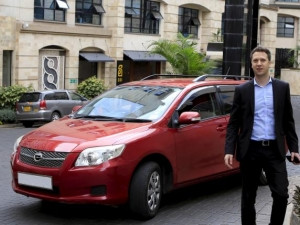
E-hailing service, Uber, is dropping fares on UberX by up to 20% in Johannesburg, Pretoria, Durban and Cape Town this week.
The company is confident the price cuts will increase demand among customers, leading to driver-partners earning more money.
"While each city adjusts to the new prices, we are putting in place minimum payment guarantees for driver-partners," says Uber Sub-Saharan Africa GM, Alon Lits. "And if the amount driver-partners make on the road isn't what we expect, we'll reassess this price change."
Reports yesterday indicated that up to 200 Uber drivers in Cape Town protested the price cuts. However, Lits says this was exaggerated and there were only 50 drivers who came to the office to find out more information about the new rates.
Lits says Uber driver-partners were informed about the price change this past weekend and information sessions were held to explain the benefits.
The price cuts are ultimately designed to help driver-partners. "This is because a driver-partner who is logged into the Uber app is doing one of three things: sitting idle while waiting for a trip, on their way to pick up a rider, or carrying a rider to their destination," the company said in a statement. "The third scenario is when a driver-partner is earning a fare."
Lits says the company expects existing riders to use the service more and more, and additional people who thought it was too expensive to start. "The more people who use Uber, the more people use Uber."
In 2014, there were over one million Uber trips in SA. In the first half of 2015, there were over two million trips booked.
Uber claims that within the centres it operates in SA, users will be able to hail an Uber within four minutes. "This figure shows it is a reliable alternative to car ownership, our biggest competitor," says Jambu Palaniappan, Uber MEA GM.
Lits says Uber's calculations found the average business person could use Uber instead of a car and pay less than R4 000 a month.
Lits and Palaniappan do not own cars themselves and make use of the platform as their primary form of transport.
Previous prices:
Johannesburg | Cape Town | Durban | Port Elizabeth | |
Base fare | R5 | R5 | R5 | R4.25 |
Per minute | R0.75 | R0.70 | R0.70 | R0.60 |
Per km | R7.50 | R7 | R7 | R6 |
Minimum fare | R20 | R20 | R20 | R17 |
Cancellation fee | R25 | R25 | R25 | R20 |
New prices:
Johannesburg | Cape Town | Durban | Port Elizabeth | |
Base fare | R5 | R5 | R5 | R4.25 |
Per minute | R0.60 | R0.60 | R0.60 | R0.60 |
Per km | R6 | R6 | R6 | R6 |
Minimum fare | R20 | R20 | R20 | R17 |
Cancellation fee | R25 | R25 | R25 | R20 |
New UberPool
Uber SA hopes to bring UberPool, a car-pooling option, to the platform soon.
It is already operational in the US, China, India, London and Paris. Palaniappan says it is doing incredibly well, as it is a more compelling option and saves passengers more money.
UberPool allows passengers going from similar places to similar destinations to share a ride and split the cost.
Lits says Uber SA estimates if UberPool was used by existing Uber customers, traffic into Johannesburg could be reduced by up to 800 000 cars.
No official launch date for the product was given.
Legal resolution
Government was slow to regulate the new industry created by Uber, leading to ambiguity around how the e-hailing service should be licensed. However, last month, two years after Uber entered the market, government moved to approve a Bill that will regulate the service in the country.
The new Bill forms part of government amendments to the National Land Transport Act. It aims to untangle the legislation deadlock that was a result of the cities where Uber operates interpreting the national licensing protocol differently.
There will now be a new licence category created, called e-hailing, which will allow for meter-cabs using technology platforms like Uber.
The company operates in nine cities in SA, Nigeria and Kenya. It plans to expand to Tanzania, Uganda and Ghana by the end of this year.
Share